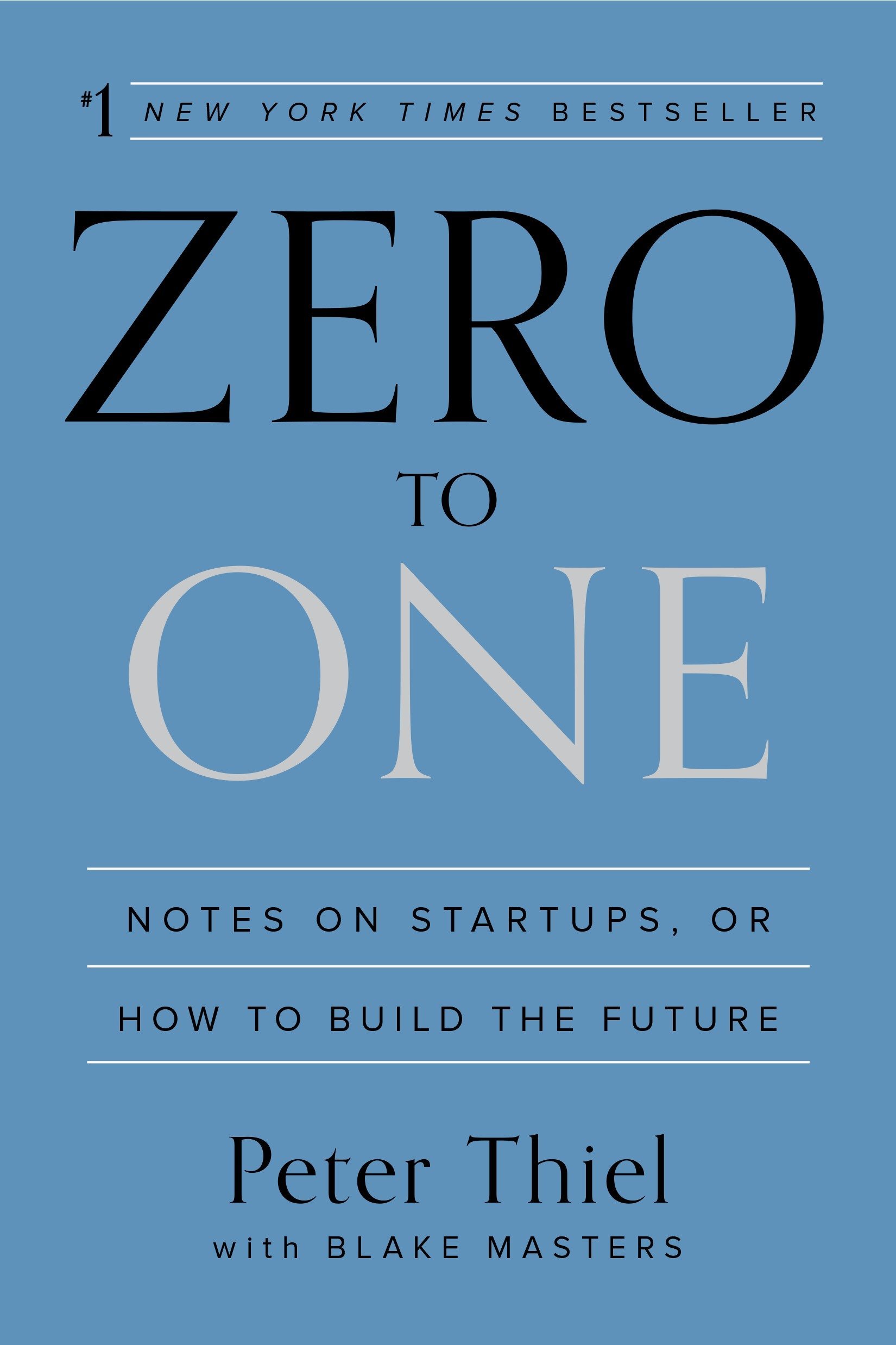
Zero to One: Notes on Startups, or How to Build the Future
This book inspires hope for a better age through a business lens. It argues that progress depends on us finding new, better ways of doing things, and this is exactly what startups should strive for. My top 10 takeaways were:
- Between competition and creative monopolies, we should pick the monopolies. This is because competition results in no meaningful differentiation (which is often exaggerated), no profits for anybody, and a struggle for survival. Creative monopolies create new products that benefit everybody and sustainable profits for themselves.
- Monopolies are characterised by:
- Proprietary technology that is 10x better than the closest substitute
- Network effects
- Economies of scale
- Our view of the future affects how we approach it. The prevailing view is an optimistic indefinite future, where we believe the future will be better, but we don’t know how exactly, and won’t make any specific plans for it. We would do better to adopt a definite view, where we plan and work to make it better.
- The book opens with a question: What important truth do very few people agree with you on? It is essentially asking if you know some fact that everyone has missed because it is hard to find. People are no longer looking for secrets. They believe the world’s hard problems are already solved, and that leaves people depressed that what they can do, a child can do, and what they can’t do, even the best can’t.
- From the get-go, a startup must get the following right:
- Ownership: Who legally owns a company’s equity
- Possession: Who actually runs the company on a day-to-day basis
- Control: Who formally governs the company’s affairs (the smaller the board, the more effective)
- Ventures follow a power law: a small handful of companies radically outperform all others. Sales do too: one effective distribution channel is all it takes to get the product out there.
- Customers will not come just because you built a good product. Poor sales rather than bad product is the most common cause of failure. And the selling isn’t just for customers - it’s for employees and investors too.
- Computers will not replace humans. Computers and humans are complementary because they are good at fundamentally different things: computers at efficient data processing, humans at planning and making decisions in compilicated situations.
- Overwhelming social need for something does not imply an overwhelming business opportunity for it. Cleantech and social entrepreneurship are examples of this.
- The seven key questions for startups:
- Engineering: Can you create breakthrough technology instead of incremental improvements?
- Timing: Is now the right time to start your particular business?
- Monopoly: Are you starting with a big share of a small market?
- People: Do you have the right team?
- Distribution: Do you have a way to not just create but deliver your product?
- Durability: Will your market position be defensible 10 and 20 years into the future?
- Secret: Have you identified a unique opportunity that others don’t see?
The author wrote about how he was almost awarded a Supreme Court clerkship, but did not make the final cut. He founded PayPal instead. Looking back, he realised that winning the clerkship would have changed his life for the worse, and had this to say:
All Rhodes Scholars had a great future in their past.
Scholarship or not, bonded or not, you have the power to write your own future and hopefully, make everyone’s future a better one.